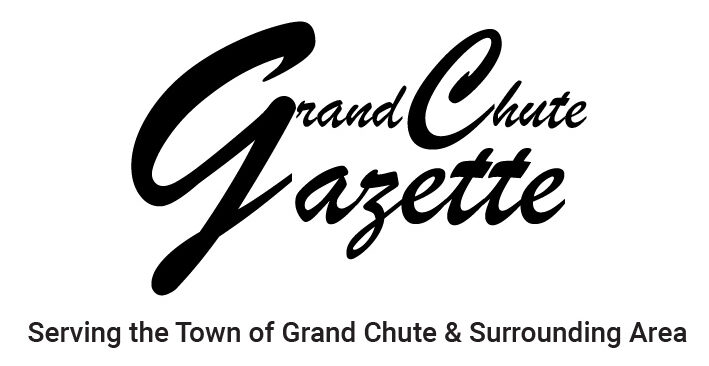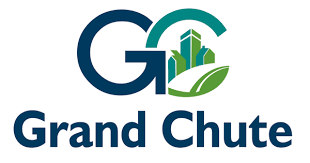JEFF INGS
Why A Property Revaluation is Needed?
Wis. Stat. 70.05(5)(b) requires all major classes of taxable properties to have an ‘Assessed Value’ (in the same year) that is within 10% of their ‘Full or Market Value’ at least once within each five-year period. Bill Gaber, Operations Manager of Accurate Appraisal, LLC, of Menasha, which Grand Chute has contracted with to perform appraisal services, stated that Grand Chute last met the state requirement in 2021, following its last Town-wide revaluation that was conducted 2020. Therefore, in order to comply with state law, the Town is again conducting a Town-wide revaluation of all taxable properties this year.
Gaber added that, as of year-end 2024, the Assessed Value of all non-agricultural property in Grand Chute was 73.90% of the Full or Market Value of the property, as determined by the Wisconsin Department of Revenue. That means, on average, real property’s Full or Market value is currently 26.10% higher than the Assessed Value. This percentage may vary according to each of eight major classifications of property in the Town, as well as by property types and individual properties within each major classification.
How Will the Revaluation Impact You?
Even though a property valuation may increase with the reassessment, the impact on the tax amount will depend largely on the Town budget amount that is approved for 2026, including any referendum that may be approved as part of the budget.
Grand Chute’s property tax bill consists of four segments, including: 1) Local (the Grand Chute portion), 2) Outagamie County, 3) School District (either Appleton or Hortonville) and 4) Technical College (FVTC). When added together, the budget amount for each of the four entities produces a total property tax amount. An increase in any of the budgets of the four entities may result in an overall property tax increase.
A scenario that was experienced in the 2020 revaluation was that residential property values increased at a rate that was almost double that of commercial properties. The difference between the residential valuation rate increase and the commercial valuation rate increase resulted in a property tax ‘rate shift’ that caused residential property taxes to increase more than commercial property taxes.
Overview of the Property Revaluation Process
The revaluation process is a large undertaking. Gaber stated that work began in February to determine the valuation of Town properties. In the process, applicable land sales that took place in 2023 and 2024 are considered for each property. Sales are applied to the various neighborhoods in which they occurred. Various permits obtained for 2024 property improvement projects are also considered based on the applicable property and neighborhood. Using the various inputs, modeling is then performed for both residential properties and commercial properties.
For residential properties, market adjustments are made for each neighborhood and style of home. For commercial properties, in addition to sales data, income and expense information is used to determine average rents, lease rates and capitalization rates. This is done to make market adjustments for each business sector. Once valuations have been calculated for each property within the Town, Value Change Notices are mailed to property owners. This mailing is scheduled to occur the week of June 23rd.
Revaluation Review Process
The revaluation review process includes two opportunities for property owners to question new valuation amounts. They are an Open Book review and Board of Review.
Open Book review. Open Book is a time-period built into the revaluation process that offers property owners an opportunity to meet with a certified appraiser to informally discuss the valuation calculated for their property. Based on these discussions, an appraiser may make changes to property valuations. Four days have been identified for the Open Book review. They are July 14, 15, 16 and 19. Appraisers will be available in the Town Hall Community Room from 9:00 AM – 12:00 PM, and again from 1:00 – 4:00 PM each of those days. Appointments can be scheduled with an appraiser by going online to: https://accurateassessor.powerappsportals.com/owners/.
Other Open Book options available to property owners are to call Accurate Appraisal at (920) 749-8098, to speak with an appraiser on the phone, or to send an email addressed to ‘assessor@grandchutewi.com.’
Board of Review. If a property owner wants to formally contest a property valuation following the Open Book period, an appeal can be made to the Board of Review. The Board of Review, which consists of members of the Town Board, is a quasi-judicial body that exists to resolve property valuation disputes. Property owners have an opportunity to present evidence to the Board of Review to show that the valuation of the appraiser is incorrect.
The Board of Review will conduct a hearing of each property valuation dispute. Each hearing begins with the assumption that the appraiser’s valuation is correct. A property owner must provide evidence that the appraiser’s valuation is not correct. The property owner must also provide the Board of Review with an alternate and supportable valuation amount. The Board of Review must decide whether the appraiser’s valuation is correct, or whether the property owner’s valuation is correct.
Evidence that is helpful for a property owner to provide to the Board of Review to dispute an appraised amount is a recent “arms-length” sale of the property in question, a recent appraisal of the property, an “arms-length” sale of a comparable property, or valuations of comparable properties. The Board of Review is scheduled to meet at the Town Hall on August 21, beginning at 9:00 AM. A notice of intent to file an objection at the Board of Review session must be received in the Town Clerk’s Office at least 48 hours prior to the Board of Review meeting. The Clerk’s office will have instructional materials available, beginning June 25, for those property owners wishing to appeal a valuation.
While the Board of Review determines a final property valuation for the year, a property owner may appeal the Board of Review’s decision to the circuit court system. Additionally, instead of conducting a hearing with the Board of Review, a property owner may request the Board of Review to waive a valuation dispute directly to the circuit court. The Board of Review has the right to grant or deny such requests.


